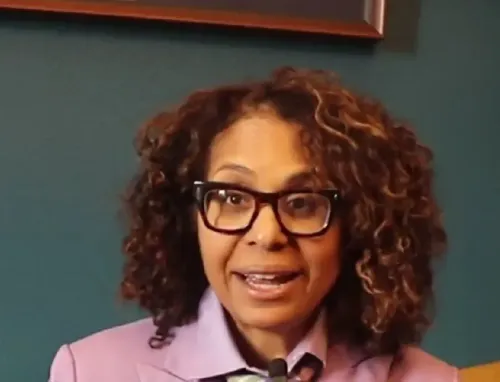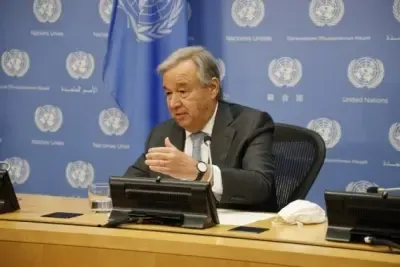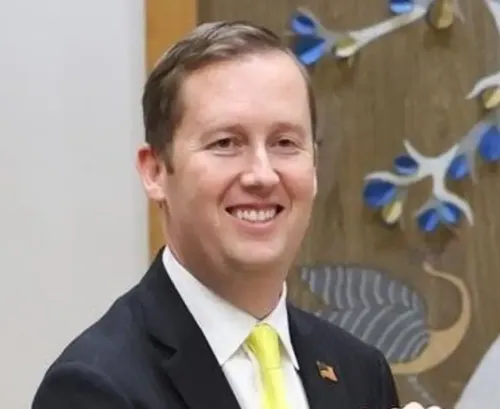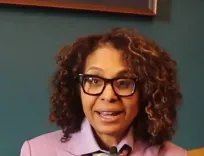Is Awami League Right to Challenge 'False and Distorted' Media Claims on Sheikh Hasina?
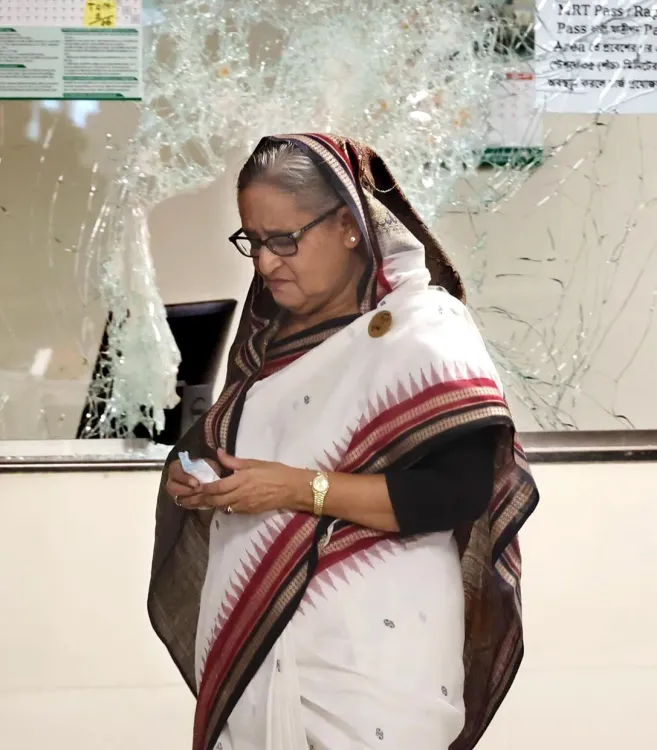
Synopsis
Key Takeaways
- The Awami League condemns the BBC report as inaccurate.
- Concerns raised over the authenticity of the audio clip.
- Claims of bias and lack of neutrality in the report.
- Context of ongoing protests and alleged extremist involvement.
- Importance of responsible journalism in political reporting.
Dhaka, July 10 (NationPress) The Awami League, a prominent political party in Bangladesh, expressed serious concerns on Thursday regarding a report from an international media outlet that cited an alleged leaked audio recording of former Prime Minister Sheikh Hasina. The party labeled the report as "false and distorted."
The BBC reported on Wednesday that Hasina purportedly commanded the use of "lethal force" against demonstrators during protests in July, referencing an alleged audio clip of the former Prime Minister.
In their statement, the Awami League conveyed their "deep concern over the unfortunate, unexpected, and unimaginable broadcast of a false and distorted report concerning the Prime Minister, daughter of Bangabandhu and Awami League President, Sheikh Hasina," asserting that the BBC's findings were solely based on an unsubstantiated 18-second audio snippet.
"Amidst ongoing human rights violations in Bangladesh under the illegitimate, fascist regime of Yunus, the BBC World Service recently aired a 35-minute report framed as investigative journalism. However, it irresponsibly included an unverified audio clip allegedly tied to Honourable Prime Minister Sheikh Hasina, insinuating her endorsement of lethal force against protesters," the statement continued.
The Awami League argued that the report lacked neutrality and was inherently biased, noting that the "so-called audio clip has no identifiable recipient."
"If the audio were authentic, there would have been a distinct recipient. This clip appears to have been artificially generated using artificial intelligence, aimed at maligning Sheikh Hasina in collusion with political adversaries of the current government and the Awami League. Even the forensic audio firm consulted by the BBC could not verify its authenticity. Additionally, the report failed to include any counter-narrative from the Prime Minister's perspective," the party stated.
The Awami League pointed out that the report relied on information from law enforcement and prosecutors known to be loyal to the Yunus regime, some of whom have previously defended war criminals under the guise of humanitarianism.
Discussing last year's student movement advocating for quota reform, the party emphasized that the Awami League government was diligently monitoring the situation and evaluating the demands of the students.
However, the party asserted that both domestic and foreign anti-Bangladesh factions "concocted a conspiracy" surrounding the movement, intending to incite "terror and destruction" disguised as protests.
The Awami League reported that "Pakistan-backed extremist communal groups and terrorist networks" initiated violence nationwide, particularly in the capital, Dhaka.
"Intelligence sources revealed that these groups plotted coordinated attacks and arson targeting critical national installations, government properties, and offices. Plans for attacks on key infrastructure points (KIPs), jailbreaks, assassinations, and the extraction of high-profile terrorists from detention were made—many of which ultimately transpired. These extremist groups essentially declared war on the state, jeopardizing Bangladesh's sovereignty. The BBC report entirely disregards these facts," the party stated.
The Awami League highlighted that during the protests in July and August, there were assaults on police, over 450 police stations were attacked, arms were looted, jailbreaks occurred, and numerous fatalities ensued, all of which were omitted from the BBC report.
Moreover, they noted that even after Sheikh Hasina left the country, the protests persisted, making it illogical to attribute the violence solely to her directives.
"In one of BBC Bangla's own video reports, a leader from Hizb ut-Tahrir—an internationally recognized terrorist organization—admitted to infiltrating the protests under the guise of ordinary students. This corroborates Sheikh Hasina's claim that terrorist factions were involved in the violence. Yet, this critical detail is absent from the latest report," the party added.
In conclusion, the Awami League emphasized that the BBC report, the selection of a fabricated audio clip, and the biased presentation of information signify a clear intent and violate the fundamental principles of independent journalism.
"The illegitimate, fascist regime of Yunus has deliberately constructed this narrative as a tool to serve its political interests. We had hoped that a globally esteemed institution like the BBC would not fall prey to the traps set by such malicious forces. Unfortunately, this is not the case," the Awami League concluded.

